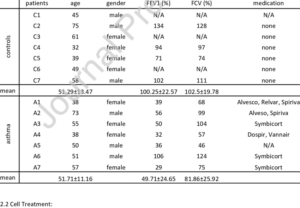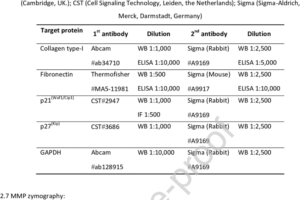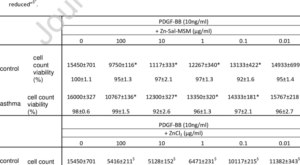Asthma is characterised by chronic inflammation and tissue remodelling of the airways. Remodelling is resistant to pharmaceutical therapies. This study investigated the effect of zinc salicylate-methylsulfonylmethane (Zn-Sal-MSM) compared to zinc salicylate (Zn-Sal), or sodium salicylate (Na-Sal) or zinc chloride (ZnCl2) on remodelling parameters of human airway smooth muscle cells (ASMC). Human ASMC obtained from asthma patients (n=7) and non-asthma controls (n=7) were treated with one of the reagents. Cell proliferation and viability was determined by direct cell counts and MTT assay. The expression of and phosphorylation proteins was determined by Western-blotting, ELISA, immunofluorescence, and mass spectrometry. Extracellular matrix deposition by ELISA. Zn-Sal-MSM, Zn-Sal and Na-Sal (0.1-100 µg/ml) significantly reduced PDGF-BB-induced proliferation in a concentration dependent manner, while ZnCl2 was toxic. The reduced proliferation correlated with increased expression of the cell cycle inhibitor p21(Waf1/Cip1), and reduced activity of Akt, p70S6K and Erk1/2. Zn-Sal-MSM, Zn-Sal, but not Na-Sal reduced the deposition of fibronectin and collagen type-I. Furthermore, Zn-Sal-MSM reduced the mitochondria specific COX4 expression. Mass spectrometry indicated that Zn-Sal-MSM modified the expression of several signalling proteins and zinc-dependent enzymes. In conclusion, Zn-Sal-MSM and Zn-Sal potentially prevent airway wall remodelling in asthma by inhibition of both the Erk1/2 and mTOR signalling pathways.




 2021 Inventive Medical Foundation, All rights reserved
2021 Inventive Medical Foundation, All rights reserved